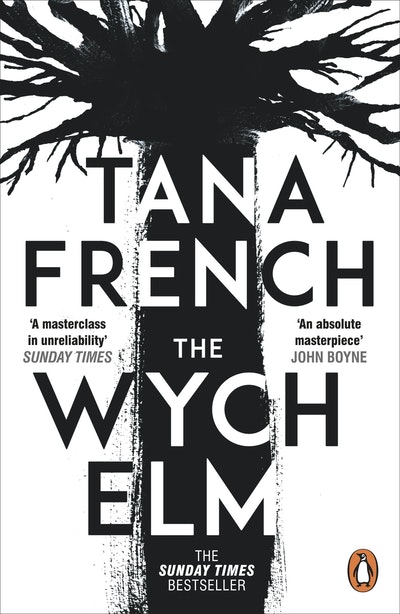One of the great things about books is that they don’t have a use-by date. The Wych Elm (Penguin Random House 2018) by Tana French is six years old now but packs the same punch as the day it was published. Thanks to Ashley Kalagian-Blunt for introducing me to this author (well, nagging me until I finally got around to reading her). French is an amazing crime / mystery / physiological thriller writer and this standalone book (she also does series) is a rollercoaster ride from start to finish.
The most original aspect of this novel is the voice, and the extremely clever way French uses the narrator, and reconstructs the idea of an unreliable narrator. The concept of an unreliable narrator is fairly common, but in this novel, French opens with a home break-in scene / burglary during which the thieves give the narrator a solid beating, resulting in him sustaining a serious head injury and memory problems. So when the story proper begins, it is not only us, the reader, who doesn’t know if the main character, Toby Hennessy, is a reliable narrator. Toby – because of his dodgy brain and suspect memory – doesn’t even know himself whether he can rely on his own memory or narration of the story. This is so skilfully constructed that the reader doubts almost everything in the book, either because we think Toby might be lying to us, or because we think he might be not telling the truth because he doesn’t actually know what the truth is. Or perhaps, of course, he IS telling the truth and he is a totally reliable narrator! This complicated set-up leads to a complex and layered story that leaves us guessing until the very end, asking who and why, suspecting many of the major characters who have a variety of motivations.
But I’m getting ahead of myself. The plot. That one terrible night does change everything for Toby, the brutal attack leaving him traumatised and changed, leading him to take refuge at his uncle’s rambling country mansion, the Ivy House, a place that has been a central feature of his childhood, involving long summers with his cousins and extended family, and raucous teenage parties as they grew older. But this is not the crux of the story (or we don’t believe it is … how are we to be sure?) The action really begins not long after Toby arrives at the Ivy House, when a human skull is discovered hidden in the huge wych elm at the bottom of the garden. Who could it be? How long has it been there? The house has been in Toby’s family for generations. The grounds are generally off limits to people other than family. And so the mystery begins. The police, of course, are conducting an investigation into the gruesome discovery (and also still investigating Toby’s attack), but Toby is beset by memories and fake memories and recollections he is unsure of, more so as the novel progresses. Because of his head injury, he is not sure of how much he remembers is fact and how much might be illusion. At the start, he is certain of his capacity, but this certainty dissolves as the narrative progresses.
The detectives begin to circle closer to the truth and Toby is confronted with everything he has taken for granted about his family, his past history, his relationships with others and the family dynamics that have governed several generations of the occupants of the Ivy House.
The Wych Elm is spooky, moody, atmospheric; almost gothic in its setting (and not a witch in sight!) The writing is poetic and literary but pulsing with the page-turning suspense of a truly great psychological thriller. The narrative is a complicated web of plot threads, each one gently pulled and explored by the writer to see if this one, or this one, leads to the truth.
This is contemporary crime / psychological mystery at its very best. Great characterisation, clever plotting and an immersive setting, with several surprising twists and turns along the way.

